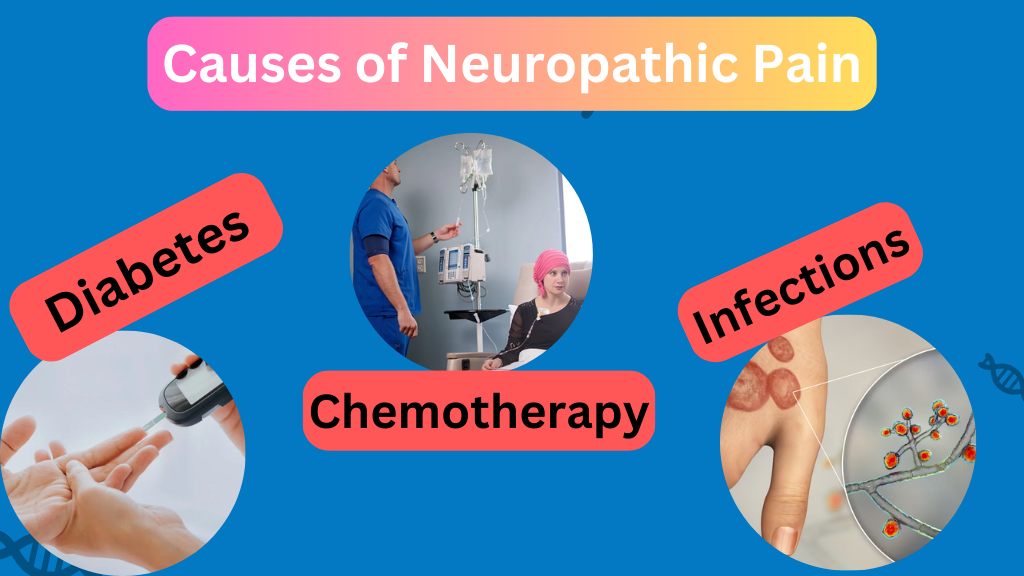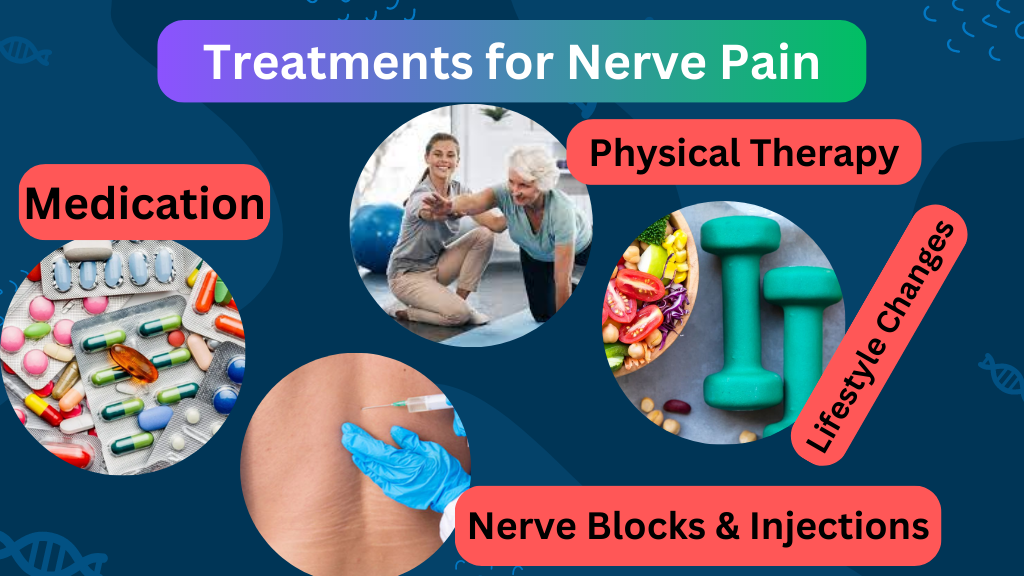Neuropathic Pain (Nerve Pain): Feeling, Signs, Causes & Treatment
-1140x300w.png)
Neuropathic Pain is a type of chronic pain, that is caused by damage in the nervous system. Typically pain is caused by injury or inflammation, but neuropathic pain arises due to the damage of nerves in the brain. It can be described as shooting, burning, tingling, or electric shock-like sensations.
What is Neuropathic Pain?
This pain is a type of chronic pain that occurs when the nervous system is damaged. It can be caused by a variety of factors such as diabetes, chemotherapy, infections, and injuries. Neuropathic pain can be mild to severe and sometimes it becomes difficult to treat.
Symptoms of Neuropathic Pain?
The symptoms of nerve pain depend on the causes of the pain. However, some common symptoms include:
- Burning, numbness, or tingling
- Sharp, shooting pain
- Pain feels like under the skin
- Pain that is difficult to describe
These are the same symptoms that indicate you, you having nerve-related pain.
What are the Causes of Neuropathic Pain?
There are different different types of, causes for nerve pain. Some of the most common causes include:

1.) Diabetes:
This is the common cause of nerve pain, it damages the nerves of the hands, feet, and legs.
2.) Chemotherapy:
This is a drug type of treatment, used to treat fast-growing cells in the body. Chemotherapy can also damage the nerves, which becomes the cause of nerve pain.
3.) Infections:
Infections such as shingles, chickenpox, and Diphtheria, can also damage the nerves and lead to nerve pain.
What are the Treatment Options?
Neuropathic pain treatment aims to alleviate symptoms and improve the individual's quality of life. Here are some common treatment options such as:

1.) Medication:
- Anticonvulsants: Anticonvulsant medications such as gabapentin and pregabalin medicine used to treat nerve-related pain.
- Antidepressants:
- Topical Treatments: Some creams or patches are used to relieve nerve pain.
2.) Physical Therapies:
- TENS: Tens stands for Transcutaneous Electrical Nerve Stimulation, It involves the use of a low voltage electrical current to relieve and reduce nerve pain.
- Physical Therapy: Physical therapy includes exercises and stretches that help to improve muscle strength and reduce the pressure on the affected nerves.
3.) Nerve Blocks & Injections:
- Nerve Blocks: Some medications are injected into or near the affected nerves to provide temporary pain relief.
- Corticosteroid Injections: These injections reduce inflammation and alleviate pain in specific areas.
4.) Lifestyle Changes:
- Regular Exercise
- Pain Management Techniques
- Heat and Col Therapy
These are some best treatment options mentioned here. However, there are some things you can do to manage your pain. So, talk to your doctor, the more you understand about pain, the better you will be to manage it.

Leave a Comment